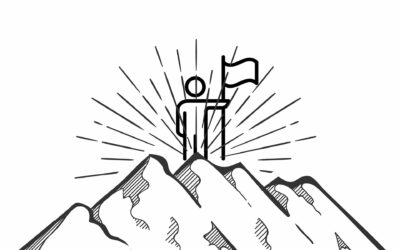We often think of courage as something that only a select few possess. We see it as a heroic trait, reserved for those who are willing to risk their lives for others. However, courage is not something that is limited to a certain group of people. It is something that we all have the potential to embody.
Courage is not the absence of fear, but rather the ability to act in spite of it. It is the willingness to face our fears and take risks, even when we don’t know what the outcome will be. Courage is not always about doing something big or flashy. Sometimes, it’s about the small things we do every day. Like standing up for what we believe in, even when it’s unpopular. You can personify courage in your daily life and in your leadership.
Who is Courageous?
Some of the most popular books of all time have been written about courage.
Former U.S. President John F. Kennedy won a Pulitzer Prize for Profiles in Courage, in which he profiled senators and congressmen who courageously moved against the tide of popular opinion. Steven Crane penned one of the most influential and bestselling works in American literature, the classic Civil War novel The Red Badge of Courage. In 2007, Senator John McCain co-authored Why Courage Matters, which became a New York Times bestseller.
From every vantage point, be it political courage, military courage, moral courage, or physical courage (for example, daredevilry), courage is often defined as an extraordinary feat, an action taken while enduring exceptional hardship or challenge. To be thought of as “courageous,” we seemingly have to defy our very natures. That is, the deeply rooted impulse toward self-preservation. Courage, as we have been endlessly told, is the rare occurrence, the exception to the rule, the outlier.
Courage Within
If we judge acts of courage solely against a standard of exceptionality, we risk moving courage too far beyond our reach. By reserving courage only for war heroes, political mavericks, or people of perfect moral character, it becomes inaccessible to all of us who aren’t these things. When the term “courage” is limited only to the heroes among us, we begin to abdicate our own responsibility to be more courageous.
By inflating courage to a standard so high that it can only be attained by an exceptional few, we suck the air out of our own space to be courageous. Often to the point of extinguishing the brave little pilot lights that flicker in our souls waiting to ignite. We begin to deify our heroes, making us small and them uncomfortable. We start to think, I am not like them. Which leads us to, I am no hero. Which concludes with, I am not courageous.
When we avoid acting courageously, it is not just because we are afraid. It is because of how uncomfortable acting with courage requires us to be.
It may well be that there are two varieties of courage—one for people who have done extraordinary things, like walking on the moon, and one for those of us right down here on Earth. The reality is that few people will ever shoot a gun at an enemy or use the bully pulpit to persuade the populace or take a rocket to the moon. But all people, personally and professionally, will face a foe, suffer injustice, and face uphill challenges. The first kind of courage is admired for its exceptionality. The second kind occurs more regularly and can be thought of as everyday courage. Rather than focus on the rare and nearly unattainable kind of courage, focus on everyday courage so as to make it more accessible, understandable, and attractive. Courage is not just for heroes anymore.
What is Courage?
Courage is often defined as acting despite being afraid. The essential, and perhaps counterintuitive, element of this definition is that it is not the absence of fear. In other words, courage is not fearless. In fact, it is the opposite. Courage is fearful. It is precisely those times when your knees are shaking, when your voice is unsteady, and when your stomach is teeming with rioting butterflies that you are being courageous . . . provided, of course, that you are moving through your fear.
While it is common to include fear in the definition of courage, the definition needs to include another element too: discomfort. Acts of courage are acts of discomfort. Were they not, more people would be courageous more often. When we avoid acting courageously, it is not just because we are afraid. It is because of how uncomfortable acting with courage requires us to be. Thus, it is important to factor the idea of discomfort into a well-rounded definition of courage.
Courage, whether demonstrated in an act that will live on forever or a personal challenge is something we all experience. Courage isn’t reserved for heroes or those who have changed the course of history. It’s something we’re all capable of.
This post is an excerpt from the Courageous Leadership Facilitators Guide part of the Master Courage Building Certification Program.



